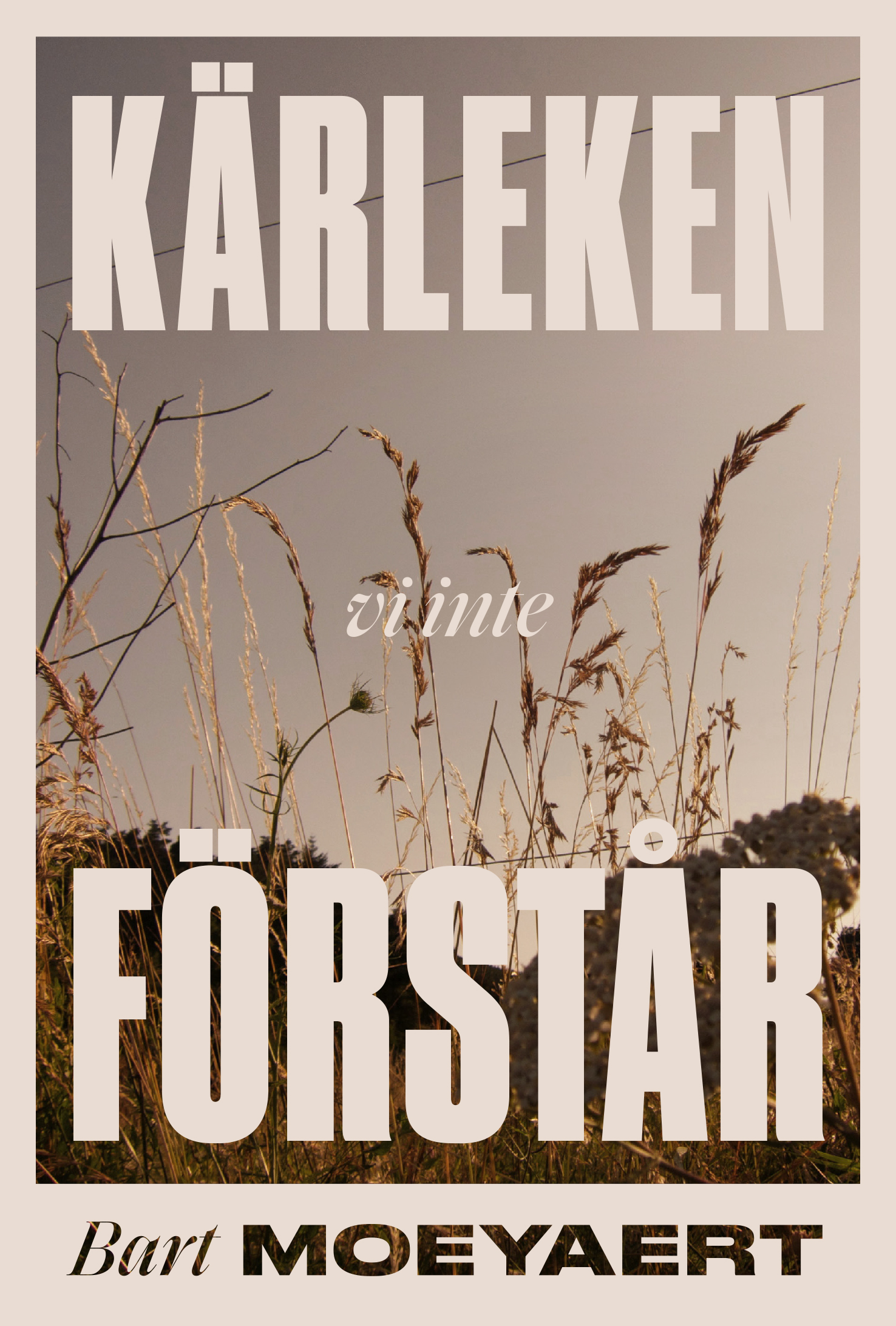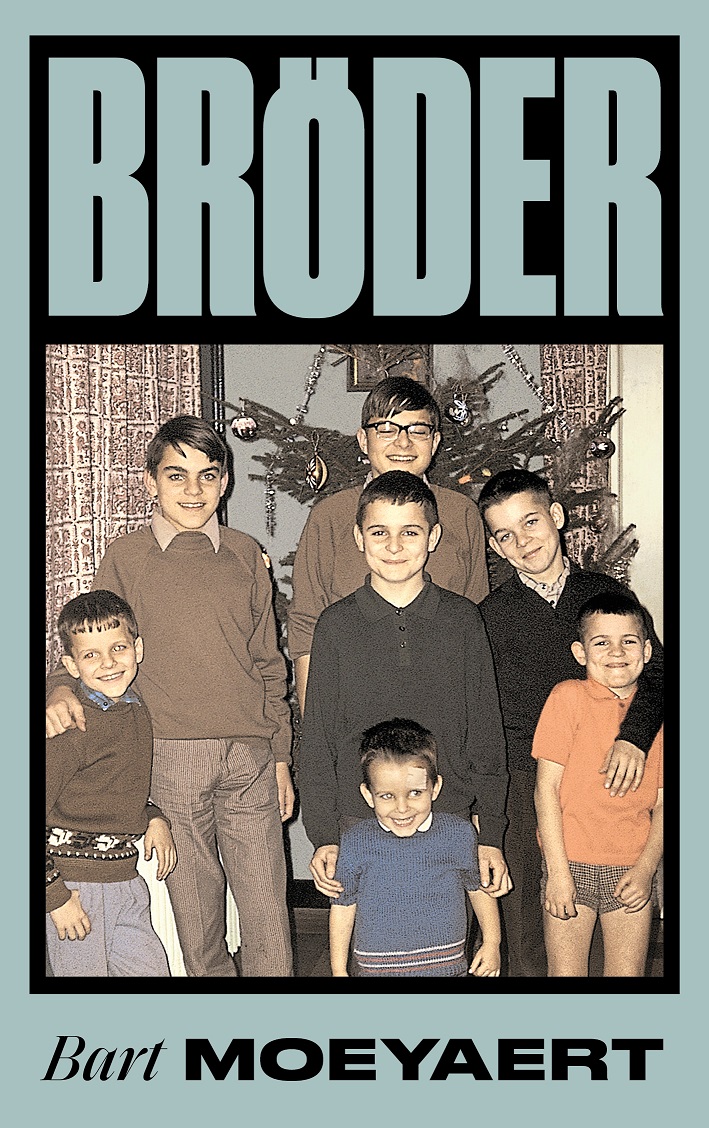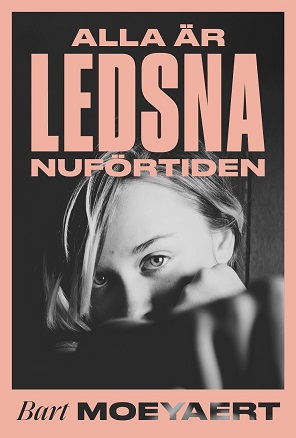Bart Moeyaert
The 2019 laureate of the Astrid Lindgren Memorial Award
In April 2019, Bart Moeyaert was awarded the Astrid Lindgren Memorial Award (ALMA). This made him the second Belgian author or illustrator, after picture book artist Kitty Crowther, to receive this prestigious prize. As of 2002, the ALMA – initiated by the Swedish state in memory of the Swedish children’s literature author Astrid Lindgren – has awarded a person or organisation making an important contribution to children’s and young adult literature. In an effort to give weight to the award and thereby children’s and young adult literature the prize money amounts to SEK 5 million, equal to roughly EUR 450 000.
Moeyaert in translation

When Moeyaert was awarded the prize in April 2019, only two of his books had been translated into Swedish: Afrika bakom staketet (Afrika achter het hek) in 1995 and Kärleken vi inte förstår (Het is de liefde die we niet begrijpen) in 2001. However, since his debut in 1983, Bart Moeyaert has been translated into various languages such as English, German, French, Italian, Japanese, Korean, Norwegian, Danish, Russian, Polish: 21 different languages in total. As a result, his authorship is well-represented globally and especially in the German language area with some 20 titles translated into German. By contrast, Moeyaert’s work was not that known in Sweden when he received the ALMA. Not only had the last translation into Swedish been published 18 years ago, in addition, the two titles, that were translated into Swedish, by then unfortunately were out of print.
The Swedish publisher Lilla Piratförlaget gained the translation rights of Moeyaert’s books in 2019 and decided to publish a second edition of Kärleken vi inte förstår (Het is de liefde die we niet begrijpen) since it was already translated and the translation rights of Moeyaert’s former Swedish publisher, Rabén & Sjögren, had expired. With the approval of the translator, the reprint was issued right in time for the prize ceremony in May 2019. Furthermore, it was decided that Alla är ledsna nuförtiden (Tegenwoordig heet iedereen Sorry) would be published in September of the same year and Bröder (Broere) in September of 2020. Interestingly, another Swedish publishing house, Rámus, decided to publish the Swedish translation of Moeyaert’s book Graz in 2020, a book targeting adult readers. Subsequently, the authorship of Bart Moeyaert was reintroduced to the Swedish readers.
Upon the reintroduction of Moeyaert in Sweden, critics and readers naturally voiced their opinion and impression of his work. Moeyaert received favourable reviews in the daily national newspapers: Expressen, Dagens Nyheter, Göteborgs-Posten. Furthermore, in a number of Swedish readers’s blogs, Moeyaert’s books were discussed. The role of bloggers nowadays unsurprisingly is also important to the publishers because they too bring an authorship to the readers. The website of Lilla Piratförlaget boasts several excerpts of positive reviews from both national newspapers and book blogs. In fact, the number of excerpts from national newspapers equals that of the blog posts showing the importance of the bloggers’ reviews. From a book blog, Jennies boklista, the following quote was taken: ‘Fantastic, moving & skilfully written!’ (my translation into English) about Kärleken vi inte förstår (https://lillapiratforlaget.se/bocker/karleken-vi-inte-forstar/). Another blogger, Boktokig, has been quoted on Alla är ledsna nuförtiden: ’What fascinates me about this powerful story is that it’s about being seen and to break free without embellishing it.’ (my translation into English) (https://lillapiratforlaget.se/bocker/alla-ar-ledsna-nufortiden/).
A fictitious presentation of Bart Moeyaert (ALMA 2019)
Unspoken

According to researcher Vanessa Joosen (2020), the ALMA jury favours authors using narrative silence especially when juxtaposed with a narrative of claiming one’s voice which more or less echoes the motivation of the jury when Moeyaert was awarded the prize: ‘Bart Moeyaert’s condensed and musical language vibrates with suppressed emotions and unspoken desires. He portrays relationships at crisis point with a cinematic immediacy, even as his complex narratives suggest new ways forward.’ (https://alma.se/en/laureates/bart-moeyaert/). The word unspoken is key here and relates to the narrative silence mentioned by Joosen. In Moeyaert’s books the narrative silence is conveyed in the in-depth description of the gestures and glances of the characters instead of letting the characters express their emotions and thoughts in words. In Brothers (Broere) the narrator is the youngest of seven brothers and he is in part also an observer of what is going on in the world of his brothers. He observes their glances and inaudible voices to be able to understand the situation and their frame of mind as this excerpt illustrates: ‘My brothers exchanged glances, thought long and hard, and now and then whispered a word I didn’t understand to see if they were all thinking the same thing.’ (p. 86). Clearly, the narrator is not always included in his brothers’ pursuits and he becomes the outsider. However, in some situations the seven brothers are all together, joined in silent togetherness, ‘like one brother with fourteen arms and legs’ (p. 139): ‘My brothers and I thought the same thing at the same time. As if we had arranged it, we looked up at the same instant.’ (p. 98). Hence, it is through the voice of the youngest brother that we follow the adventures of the seven brothers.

However, most of the time the narrator is not at the centre of the adventures, he is the follower, not taking the lead and his brothers are doing the talking. In the story Seldom in Brothers (Broere), the youngest brother picks up a shell seldom found on the beach which puts him in the centre of attention and he is urged by his father to talk about it (pp. 81-82):
- Come here, he said (the father). Confession time. He pulled me onto his lap to hear me out (…).
At this point his brothers are expressing interest in what he has obtained and ask him to tell about it:
- I found a shell, I told them.
- Let’s see it, they said.
- Let you see it? said our father.
This time the voice of the youngest brother is heard aided by his father when he proudly shows his new-found treasure: ‘a shell of significance’.
In Everyone's sorry nowadays (Tegenwoordig heet iedereen Sorry) we are presented with the thoughts and actions of the book’s main character, Bianca. She interprets the unspoken words of her mother with whom she has a strained relationship: ‘Unmanageable. Mum doesn’t say the word, but it still goes through her mind. There is so much I want to do and so much I want to say, but I take a deep breath in and then breathe out again very slowly.’ Here we can follow Bianca’s thoughts and her inability to voice her emotions. This quotation from the book singles out the unspoken voice of Bianca, nonetheless, her silence is profoundly telling.
(Annika Johansson, Associate Professor of Dutch at Stockholm University, Swedish Translator of Bart Moeyaert’)
References
Translators of the English excerpts:
- Brothers by Wanda Boeke (2005)
- Everyone’s sorry nowadays by Laura Watkinson assets.flandersliterature.be/documents/67f84dc24c49ff78f24f3917780140e3.pdf
Joosen, Vanessa. 2020. ‘Just Listen? Silence, Silencing, and Voice in the Aesthetics, Reception, and Study of Children’s Literature.’ International Research in Children’s Literature, 13.1 supplementary issue, pp. 111–126. DOI: 10.3366/ircl.2020.0341
